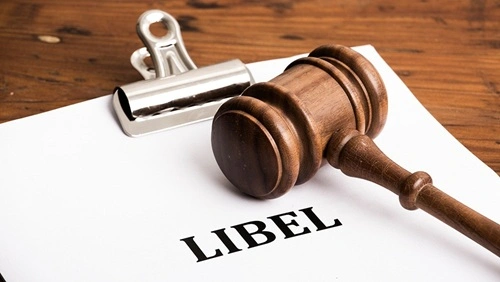Yes, Libel is considered illegal in the United States. That is most of the time, though, it is not considered a criminal offense; instead, it is seen more like a civil wrong. But in some specific cases, it can very well be treated as a criminal offense if the harm done by the Libel is of greater impact. Just to know more about this whole Libel and slander thing, we’ll advise you to just keep on reading.

What Exactly Is Libel (and How’s It Different from Slander)?
Most important is the fact that libel is when a false writing or publication is aimed at a defamation of the target’s reputation. How? To give an instance, you are posting fabricated news or telling a story about a person that ruins his/her image, this is libel.
Before that, keep one thing in mind: defamation that is spoken is called slander. Both are kinds of defamation, which, basically, are falsehoods that are told about someone and that harm their reputation or image.
Is it illegal to libel? The brief reply is yes; however, the circumstances are not that simple. You could be sued for libel, and to be sure, in a few states, it may even be considered a crime, although, as a matter of fact, the cases of criminal libel are very few.
First Of All, How Libel Laws Started in America?
The concept of libel laws has been around for a long time. A case in point is when, in 1734, a newspaper publisher by the name of John Peter Zenger was put behind bars due to his criticism of the governor of New York. His attorney made the point that it is not libel if the publication is true. The jury was in agreement with that. That time, it was the beginning of one of the main principles of the USA: to tell the truth is to be immune from libel accusations.
Afterward, every state drafted its own libel laws, and the situation remained chaotic until the 1960s, well, that was when the Supreme Court decided to harmonize the rules.
Civil vs. Criminal Libel
Libel in the U.S. is generally dealt with in the civil courts. So, if you make a false statement that damages someone’s reputation, they are entitled to file a lawsuit against you for monetary compensation, but you will not be imprisoned. Plain and simple!
To win a civil libel case, the person suing (the plaintiff) needs to prove:
- What you said was false.
- You shared it with others.
- It clearly referred to them.
- It caused real harm (could be financial or personal)
Just so you know, though, several states, as of now, still have these outdated criminal libel laws on their books; however, they are almost never invoked. The judiciary is reluctant to sentence individuals to incarceration for their speech, as it is in conflict with the person’s rights under the First Amendment.
The First Amendment and the “Actual Malice” Rule
The landmark change was made by the Supreme Court in 1964 with the case of New York Times v. Sullivan. The court ruled that public officials cannot defamation suits be successful unless they prove that the statement was made with “actual malice,” meaning that the person who made the statement knowingly falsified the statement or, at least, intentionally ignored the truth.
Later, this law was expanded to encompass characters that are visible to the public, like celebrities and people who are leading businesses.
Regarding non-public figures, the reference point is at a lower level; it is enough that they show that you have done something carelessly or negligently. The fundamental idea is still balanced: protect the inviolability of people’s names but retain the freedom of speech, especially in relation to the topics of the public sphere.